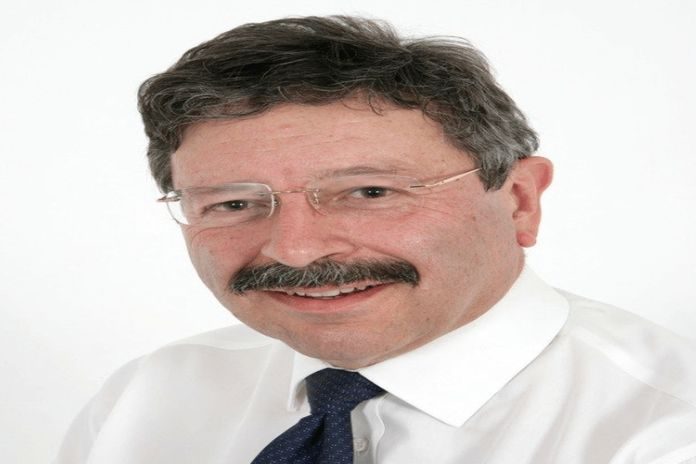By David Jessop
On Thursday last, the US Secretary of State, Mike Pompeo proposed a new approach to the political crisis that continues to grip Venezuela.
In a statement, he called for ‘free and fair’ presidential and national assembly elections organised by a transitional government by the end of this year in order he said to find an “effective and sustainable route to peace and prosperity in Venezuela”. In doing so he appeared to set aside the previous hard-line US policy of promoting dialogue only if it led first to the departure of president Nicolás Maduro.
His brief statement would seem to imply that a year after recognising Venezuela’s Congressional opposition leader, Juan Guaidó, as interim president and declaring president Maduro illegitimate, Washington sees dialogue and diplomacy rather than isolation as the way ahead.
At the time of writing the reaction of the Venezuelan government is not known. However, in recent weeks it has become clear that the internal crisis in Venezuela had been moving towards stalemate, President Maduro remains in office and is resolute, Guaidó has been losing popular support, and the role of a number of president Maduro’s external partners, including Russia, China, and Turkey, has been increasing.
Whether it is now too late for a negotiated end to the political standoff and humanitarian tragedy is uncertain.
An estimated 4.5 million of Venezuela’s citizens have fled to neighbouring countries or further afield, with multiple international agencies attesting to how millions more still living in Venezuela have been impoverished. In addition, government mismanagement, corruption, crime, hyperinflation, food shortages, and US sanctions are further destabilising the country, all complicating resolution.
In the last few days to add to the confusion, the Maduro administration enabled the election of a successor to Guaidó as president of the Venezuelan National Assembly. They did so by denying most opposition legislators access to Congress, with some reports suggesting that this may have been to enable a legal basis for the indirect transfer of oil-related assets to Russian companies and the subsequent provision of official economic advice and support.
Since then, however, Guaidó and his supporters in the legislature have forcibly re-entered the Congress building and reasserted his role, seemingly at the possible cost of there now being two Congressional leaders.
Despite all of this there are signs that popular support for Guaidó is waning following missteps in 2018, a lack of support for an attempted coup, divisions among the various factions that make up the opposition, and uncertainty surrounding the approach they should take to elections later this year.
In contrast, president Maduro has been able to weather a populist uprising, cope with sanctions and the withdrawal of recognition by many countries around the world and has begun to introduce with external advice measures that may stabilise the economy, albeit at a low level.
Pompeo’s remarks may, therefore, reflect a growing sense in Washington that this may be the last moment for a negotiated solution.
If such an outcome is unachievable, it is likely that pressure from external actors, most notably Russia and the US, but also China, Turkey, Cuba, Colombia, and the European Union, will increase based on solutions beneficial to their differing interests.
Speaking in the last few days and before Pompeo’s statement, Elliott Abrams, the US Special Envoy for Venezuela, made clear Washington’s concern about Russia’s support for president Maduro.
Observing that in 2019 Venezuela relied increasingly on Russia, he noted that its role in the economy, and particularly the oil economy, had grown much larger. “Russian companies are now handling more than two-thirds, more than seventy percent, of Venezuelan oil. They market it, they finance it, they hide it, ship-to-ship transfers, changing the name of boats, turning off transponders. They sell gasoline and diluents. So, the Russian role is increasingly important”, he observed.
“We are closely studying Russia’s role, and we will not allow the level of support we have seen in recent months without responding,” he told a media briefing. Washington had “underestimated the importance of the Cuban and Russian support for the regime”, he said.
Why Russia’s increasing engagement in Venezuela should come as a surprise to Washington, given its far-reaching capacity to discover others’ intentions, is perhaps wrapped up in president Trump’s apparent willingness to want to believe president Putin.
However, those who closely follows developments in Russia in relation to the Caribbean, Cuba, and Venezuela, know that like Cuba, Moscow has a long-stated albeit non-ideological commitment to Venezuela. It regards its relationship with both nations as geostrategically significant and related to its desire to deepen its relationship and presence in Latin America: somewhere the Russian foreign minister, Sergei Lavrov, characterised in December “as a single center in the emerging multipolar world”.
At the same time, Russia wants its state-linked oil companies to legally have access to Venezuela’s vast energy reserves in a manner that circumvents US sanctions, addresses Venezuelan indebtedness and inefficiencies and eases energy flows to Cuba, once again its strategic partner in the Americas.
The detail of Pompeo’s proposal for discussions leading to fresh elections have yet to emerge as have the reasons for Washington’s change of approach. Progress will depend on this.
It is hard, however, to avoid the conclusion that the changed US stance is anything other than a reflection of Russia’s growing engagement in the hemisphere and the gradual consolidation of power in the hands of those who support president Maduro.
The changing internal dynamics in Venezuela and geopolitics may make achieving agreement on an electoral solution a last opportunity for diplomacy, with a far from certain outcome. Despite this, the cost of not trying is high.
Failure to restore political and social stability in Venezuela risks internal and possibly external conflict, creating new tensions and divisions across the region. It would also fuel a refugee crisis in the Americas potentially worse than that in Syria; an outcome that would be in neither the interests of the Venezuelan people nor the Caribbean.





